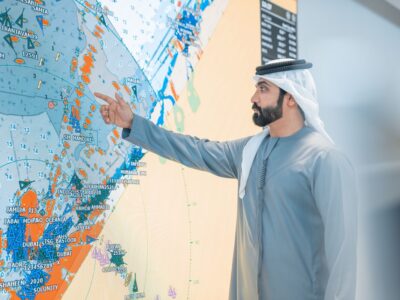Venkat Raghavan, general manager of Al Futtaim Technologies, relates his experiences as a regional system integrator – and how his sales pitches have had to evolve to keep pace with the technology.
As I walked into the conference room for a meeting with the client, I instantly recognised the place. It is the board room of a large private corporation in Dubai. I remembered making a presentation here 12 years ago when the client was looking for a new system to replace the archaic telephone system in their headquarters.
I had a reason to go in to the same room the second time now and I thought the exquisite mahogany looked even better. My client had aged gracefully and he carried a weighty business card now. I remember thinking not much else has changed in the room. That is when the client leaned towards the phone and pressed a couple of keys. The lights went down.
Something has changed. I knew what he must have done. In that elaborate IP phone, on the large LCD display he had just pressed the ‘presentation on’ setting, switching the phone into a ‘do not disturb’ state, while it talked to the electrical systems which have responded to the call. If you wanted he could have also adjusted the temperature of the room from his phone.
Ten years is a long time in the evolution of IT, the equivalent of thousands of years of Darwinian selection. How has it changed system integration? The best example is the PBX, an endangered species if not completely extinct now.
When we pitched for a PBX deal 12 years ago, we were talking about using ISDN to transform the analog systems into a durable digital one. With the new system, the client could offer direct access to all extensions from outside, an efficient telephone cost management system and voice mail. All these functionalities work to this day and the system was able to accommodate the nearly 75% staff growth rate they had.
So why change the telephone system? His phone does not talk to the building management system. Wait – what are we talking about now? Wasn’t Voice over Internet Protocol (VoIP) the hottest thing? We haven’t finished discussing this evolution and we already have another one.
The discussion on VoIP was fundamentally about the evolution of the platform. By unifying the infrastructure on which voice and data travel, we first brought to the PBX world standardisation, and gave them the ubiquitous presence of various elements of networking.
One person who is clearly unhappy at the transition is the administration manager. He who bought the furniture and other fixtures no longer has the privilege of deciding on the telephone board that operated under his auspices. And the salesman ,who had done a good job so far on features and pricing, was left praying that the deal should not fall through just because the person does not like the colour of the operator console.
The unified communications salesman now has to contend with the far more knowledgeable and fastidious IT manager. Imagine the complexities when the same IT manager is tasked with integrating the unified communications with building automation. 12 years ago, the PBX technician’s computer literacy was equivalent to the administration staff in the office. He had to contend with PCBs in massive cabinets, and also grapple with telephone wires and distribution panels. Now this technician has either evolved to carry a laptop with him all the time for configuration support or has retired.
The software developer, who is working on XML and the middleware is now at the fore of the integration of the low current systems and the unified communications and networking systems.
The systems integrator has the option of housing all the competencies within the organisation, outsourcing some of the work. He can also go for strategic alliances that bring together complementary skill sets which while creating an enriched offering also keep the organisation lean and focused on core competencies. The last mentioned might have further gained credence in the current economic climate.





